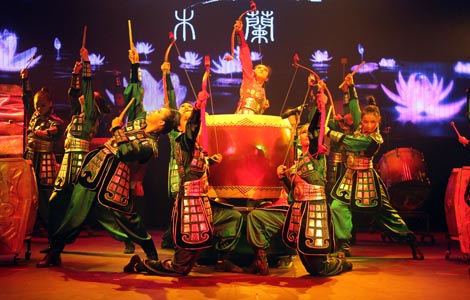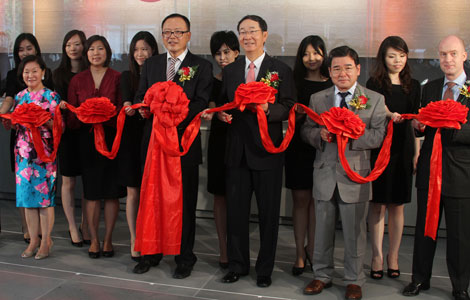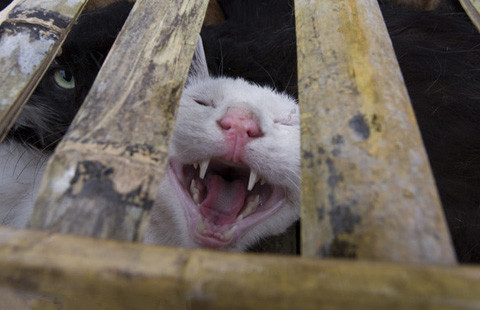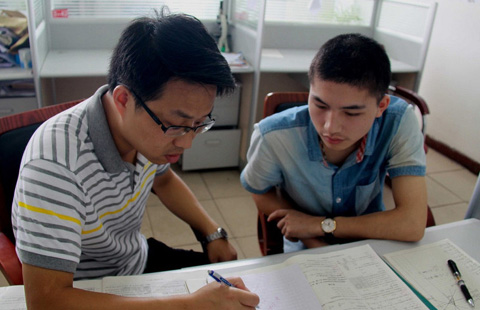Iris and the Nanking Massacre
Updated: 2014-07-04 12:03
(China Daily USA)
|
||||||||
It was around 1979-1980 when Iris Chang was in fifth grade that she developed a great interest in her own roots and was extremely curious about her family history and background.
When her grandparents lived with her for three months in 1975, she was too young to understand the historical significance of events that would later capture her. But she would ask many questions, such as where her family came from, why did the family have to come to the US, and what was China like when her parents were her age.
Ying-Ying Chang, Iris's mother, usually told her over the dinner table about her grandparents. How her grandfather was an orphan at the age of 9 and, in spite of his poor family background, he beat the odds, challenged his fate, struggled and made a name of his own by working hard.
"We told her of the sufferings of both our parents' lives during the Sino-Japanese War and the subsequent civil war between the Kuomintang and the Communists," she said.
"Among the many stories we told her, the one about how my parents almost separated from each other during the Japanese invasion of Nanking in 1937 was particularly prominent in her mind," she said.
They also told Iris about the Nanking Massacre when they described the brutal war crimes that Imperial Japan committed during the war, she said.
"We never anticipated those stories would later become the impetus for Iris to write The Rape of Nanking: The Forgotten Holocaust of World War II, which changed the world's view of WWII forever," she said.
The mother still remembers Iris's answer when she was asked whether she really wanted to continue to write the book. "Yes, Mom. What I'm suffering right now is nothing compared to those victims who perished in the massacre. As a writer, I want to rescue those victims from oblivion, to give a voice to the voiceless," Iris said.
And she told her mother: "History is one way to maintain checks and balances to power. . . Historical amnesia only increases the possibility of human-rights abuse and genocide. For it emboldens those who think they could get away with murder, and not be judged for their actions by future generations."
Iris's mother said her daughter also told her that "we have a moral responsibility to speak out against injustice. . . . It was this sense of moral responsibility - and moral outrage- - that goaded me to write my second book, The Rape of Nanking".
At a press conference in Los Angeles on August 3, 2000, to support a bill known as the Japanese Imperial Army Disclosure Act, Iris said: "That the essence of American democracy comes from our ability to question and challenge those in power, and to make them absolutely accountable to the people.
"It is our duty as American citizens to hold our elected officials responsible. We should be keeping a tally on which politicians support important legislation, and which merely give us lip service. We don't work for them . . . they work for us."
Chinese-American activists in the US have been working very hard to get California to pass a requirement that the Asian Holocaust be included in school curriculum, but so far California has not acted, said Iris's mother.
American students study the Jewish Holocaust extensively in school, but they don't spend any time on the Asian side of WWII, she said.
"Maybe, we see more young Americans study Chinese language, but it may relate to practical and economical reasons since China gradually has become the biggest trading partner with United States," she said.
"I believe with the continuing growing power of China, the US cannot ignore many past historical issues with China."
(China Daily USA 07/04/2014 page20)

 Macy's 'Fourth' show will include made-in-China fireworks
Macy's 'Fourth' show will include made-in-China fireworks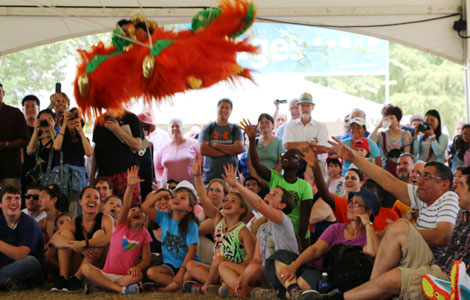
 Smithsonian Folklife Festival 2014 features China and Kenya
Smithsonian Folklife Festival 2014 features China and Kenya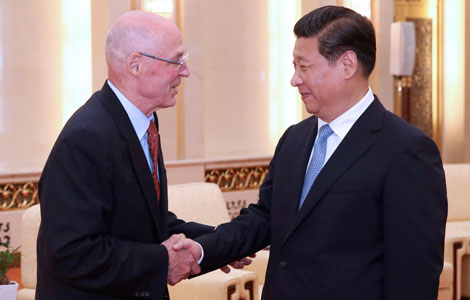
 Xi urges US to view China 'objectively'
Xi urges US to view China 'objectively'
 Xbox One readies for national debut
Xbox One readies for national debut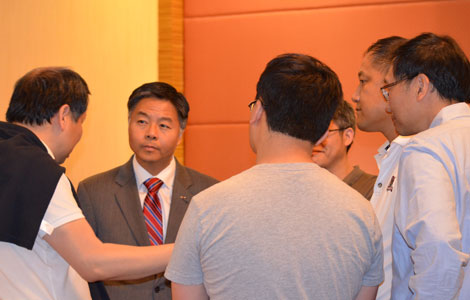
 Political plan
Political plan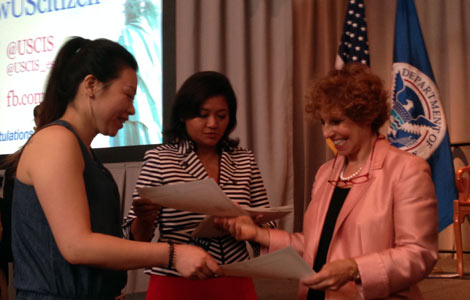
 Naturalization ceremony at New York Public Library
Naturalization ceremony at New York Public Library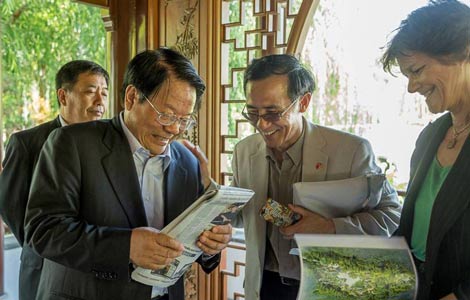
 Bridging the culture gap
Bridging the culture gap
 Consumers from China prefer niche luxury items
Consumers from China prefer niche luxury items
Most Viewed
Editor's Picks

|

|

|

|

|

|
Today's Top News
Private, foreign investment to aid tourism industry
Culture the best basis for ties
Chinese turns to US for milk products
Giving voice to voiceless people
China's presence in RIMPAC 'significant'
US hopes high for S&ED
Restrictions loosened in Shanghai trade zone
Top-level general expelled for graft
US Weekly

|

|
